by Patricia Cockerill
India was a chaotic
bubbling cauldron of overcrowding, poverty, dirt, and unpleasant and
offensive smells that I grew to despise. Especially when every morning
we made a pilgrimage into the "Basti" a poor neighborhood where Inayat
Khan's temple-tomb 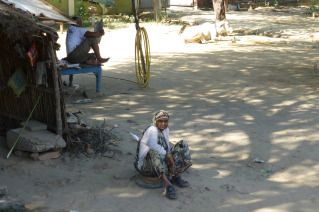 was located. On the walk through the Basti I saw people living on
sidewalks without even a tarp overhead. There were narrow dirty alleys
weaving through the hovels with what appeared to be frightened and
strange people staring back at me like I was an intruder. In fact, I
felt that I was.
was located. On the walk through the Basti I saw people living on
sidewalks without even a tarp overhead. There were narrow dirty alleys
weaving through the hovels with what appeared to be frightened and
strange people staring back at me like I was an intruder. In fact, I
felt that I was.
 was located. On the walk through the Basti I saw people living on
sidewalks without even a tarp overhead. There were narrow dirty alleys
weaving through the hovels with what appeared to be frightened and
strange people staring back at me like I was an intruder. In fact, I
felt that I was.
was located. On the walk through the Basti I saw people living on
sidewalks without even a tarp overhead. There were narrow dirty alleys
weaving through the hovels with what appeared to be frightened and
strange people staring back at me like I was an intruder. In fact, I
felt that I was.
I could not understand how
these people could live under such horrid conditions. They had so
little while I had so much. My heart ached for the barefoot children
dressed in rags; for the emaciated animals - goats, dogs, an occasional
pig. India for me was not exotic, it was a horror. Each day I found
myself withdrawing my heart deeper into my chest so I could walk through
this scene without feeling the pain or the fears that were welling up.
All I wanted to do was get out - out the dirt, out of the poverty, and
out of the pain that I witnessed everywhere I looked.
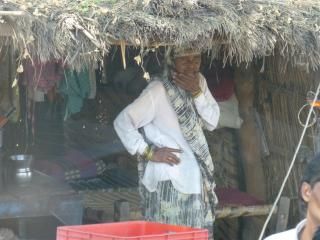
One morning I asked the
spiritual leader of our trip, "How can this pain exist on the planet and
on this massive scale?" He saw my struggle and said, "Let me get back
to you..." The next morning at breakfast he told me the answer had come
to him in a dream. He said, "It depends on your perspective. When you
see with the mind you are one of the patients filled with the pain.
When you see with the heart you are the doctor. Through that love you
able to help ease their pain."
Without words, I had been praying for an answer, and praying for help without realizing I was praying for help. When I heard his reply something happened to me. My hardened "protected" heart cracked open and I began to cry tears of joy. Everything changed in an instant. I saw a whole new India I'd not seen before. It was as though my heart grew eyes, ears and nostrils. Yes, the squalor was still there, the smells of raw sewage still existed, and everything was still covered in the pervasive dust. But I was also seeing the color, music and sweetness beneath the canvas that all of India had been painted on.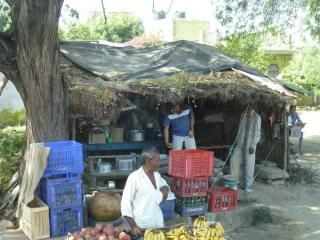
Without words, I had been praying for an answer, and praying for help without realizing I was praying for help. When I heard his reply something happened to me. My hardened "protected" heart cracked open and I began to cry tears of joy. Everything changed in an instant. I saw a whole new India I'd not seen before. It was as though my heart grew eyes, ears and nostrils. Yes, the squalor was still there, the smells of raw sewage still existed, and everything was still covered in the pervasive dust. But I was also seeing the color, music and sweetness beneath the canvas that all of India had been painted on.

I felt a connection with
every being in every shop, in every rickshaw, and in every humble person
sweeping debris on the streets of Delhi. In the ramshackle hovels I
now saw a business enterprise supporting a family and I became part of
the ebb and flow of that life. I realized it was the God within me that
was seeing India anew. It was not me, nor this ego that judges
everything as good or bad while pushing away anything I could not
understand.
Because of my fear and anger at the horrors on the streets of India, I had missed almost a whole week of India. I had pulled inside and shut the door; missing out on the Qawali musicians that play chants at the mosques where everyone gathers around and joins in joyously. All that I had been able to feel was the oppressive heat, the crush of strangers invading "my" space, the extreme poverty and the ever present odors.
Our local guide Sanjay who grew up in India though he now lives in Boulder, explained how life works in India, how the people live, how they think, and what their expectations are. He said, "Notice how everyone smiles. They don't know they have nothing." What he said was true. I saw more smiles on these faces than I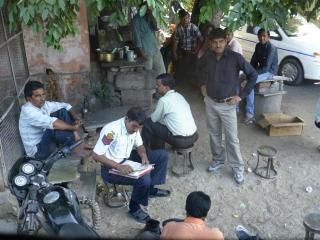 usually see from people at home who have so much. Sanjay's lessons were to continue for most of the trip.
usually see from people at home who have so much. Sanjay's lessons were to continue for most of the trip.
Traveling by bus from Agra to Ajmer, we had to stop and pay local taxes as we went from one region to the next. As the driver left the bus to attend to the taxes, I noticed a small shop on the side of the road. The shop had tree branches holding up a roof made of black plastic and twigs. The counter-top was an old worn wooden plank with a few items for sale. Sanjay explained that the whole family lives in the back of the shop. He also explained that in the East they believe that every guest is God and that it is an honor to serve the guest.
Because of my fear and anger at the horrors on the streets of India, I had missed almost a whole week of India. I had pulled inside and shut the door; missing out on the Qawali musicians that play chants at the mosques where everyone gathers around and joins in joyously. All that I had been able to feel was the oppressive heat, the crush of strangers invading "my" space, the extreme poverty and the ever present odors.
Our local guide Sanjay who grew up in India though he now lives in Boulder, explained how life works in India, how the people live, how they think, and what their expectations are. He said, "Notice how everyone smiles. They don't know they have nothing." What he said was true. I saw more smiles on these faces than I
 usually see from people at home who have so much. Sanjay's lessons were to continue for most of the trip.
usually see from people at home who have so much. Sanjay's lessons were to continue for most of the trip.Traveling by bus from Agra to Ajmer, we had to stop and pay local taxes as we went from one region to the next. As the driver left the bus to attend to the taxes, I noticed a small shop on the side of the road. The shop had tree branches holding up a roof made of black plastic and twigs. The counter-top was an old worn wooden plank with a few items for sale. Sanjay explained that the whole family lives in the back of the shop. He also explained that in the East they believe that every guest is God and that it is an honor to serve the guest.
In the hut an old woman smiled at us. Sanjay said she was offering us her hospitality so he got off the bus to sit with her. I watched them laughing and talking. She offered him a small terracotta cup, home made and fired in the woman's cook-fire. She was about to pour hot tea into the cup. But as I watched him he shook his
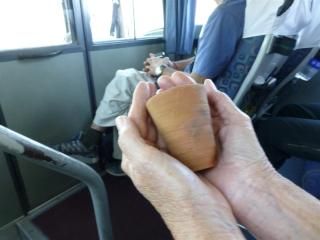 head "no." Instead, he pressed a few rupees into her hand while taking the empty cup. Then he returned to the bus.
head "no." Instead, he pressed a few rupees into her hand while taking the empty cup. Then he returned to the bus.
When he got on the bus he
handed me the terracotta cup. He said he'd told the old woman it was
for someone on the bus so she would be remembered. I held the precious
cup in wonder as my heart melted in my chest. Sanjay could see how
much it meant to touch such a simple offering from someone who I
considered had nothing. Yet, it was the most precious gift that I
brought back from India.
In
that moment, when he saw my eyes fill with tears, he knew. With this
simple offering, I had shared a spiritual experience with a fellow
human being - a woman 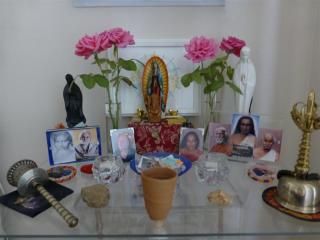 who gave her guest (God) a cup of tea, and a man who understood that a
small terracotta cup, made by a strange woman sitting in the dirt, had
transformed me.
who gave her guest (God) a cup of tea, and a man who understood that a
small terracotta cup, made by a strange woman sitting in the dirt, had
transformed me.
 who gave her guest (God) a cup of tea, and a man who understood that a
small terracotta cup, made by a strange woman sitting in the dirt, had
transformed me.
who gave her guest (God) a cup of tea, and a man who understood that a
small terracotta cup, made by a strange woman sitting in the dirt, had
transformed me.
Her terracotta cup now sits
on my personal altar, reminding me of the indelible life lesson learned
on the side of the road in India.

 deep meaning for those on the spiritual path where symbolic and
esoteric meanings are assigned to the numerical combinations. Most
people outside the metaphysical communities have no awareness that the
triple-digit dates are precise energetic focal points that open portals
from the physical into the spiritual and ethereal realms.
deep meaning for those on the spiritual path where symbolic and
esoteric meanings are assigned to the numerical combinations. Most
people outside the metaphysical communities have no awareness that the
triple-digit dates are precise energetic focal points that open portals
from the physical into the spiritual and ethereal realms. 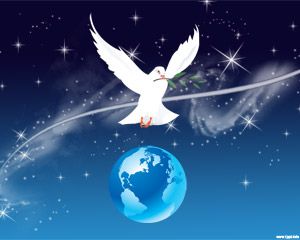 There's general consensus that something unique is happening at this
time on earth and that we need to step up our intentions of purpose and
good-will. An elderly rabbi in Jerusalem recently suggested that world
peace was not illusive. He proposed that moderate spiritual and
religious leaders come together to craft a workable solution for peace
in the Middle East. He was convinced that if there was peace in
Jerusalem there would be peace between Arabs and the West and if there
was peace between Arabs and the West, there would be peace on earth.
There's general consensus that something unique is happening at this
time on earth and that we need to step up our intentions of purpose and
good-will. An elderly rabbi in Jerusalem recently suggested that world
peace was not illusive. He proposed that moderate spiritual and
religious leaders come together to craft a workable solution for peace
in the Middle East. He was convinced that if there was peace in
Jerusalem there would be peace between Arabs and the West and if there
was peace between Arabs and the West, there would be peace on earth. 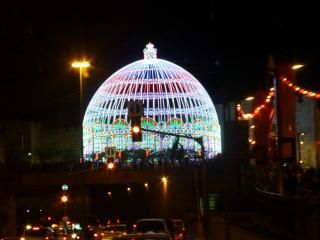 blueprint for the physical manifestation of the world coming together
as one. In 2012, that blueprint known as the Sands of the World
Mandala, will be constructed by the Sarasota community using sand,
earth, stones and sacred objects from holy, mythic and historic sites
from around the world. Collected and brought to Sarasota by hundreds of
people who traveled to these sacred places, this sand, the fabric of
our earth, will set into form a pattern for unity for generations to
come. The Mandala's geometric form, infused with the very mineral
essence of Mother Earth will impress upon the viewer in a tangible way
how world diversity within unity might look one day.
blueprint for the physical manifestation of the world coming together
as one. In 2012, that blueprint known as the Sands of the World
Mandala, will be constructed by the Sarasota community using sand,
earth, stones and sacred objects from holy, mythic and historic sites
from around the world. Collected and brought to Sarasota by hundreds of
people who traveled to these sacred places, this sand, the fabric of
our earth, will set into form a pattern for unity for generations to
come. The Mandala's geometric form, infused with the very mineral
essence of Mother Earth will impress upon the viewer in a tangible way
how world diversity within unity might look one day.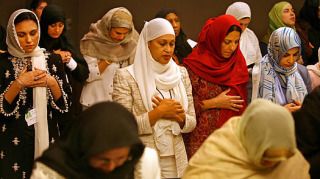 between governments and those in need, the Mandala has emerged as a
reservoir of hope on behalf of the citizens of the world. It's evident
that as the sands from around the world are placed side by side in a
sacred mandala, so too can individuals of all religions, races, and
belief systems be brought together to live in harmony. All it takes is
people believing it can and will be done.
between governments and those in need, the Mandala has emerged as a
reservoir of hope on behalf of the citizens of the world. It's evident
that as the sands from around the world are placed side by side in a
sacred mandala, so too can individuals of all religions, races, and
belief systems be brought together to live in harmony. All it takes is
people believing it can and will be done. 
 expended to get from the negative exclamation back to the positive.
Consider a twelve year old who wants to go to a rock concert which the
parents do not feel is appropriate.
expended to get from the negative exclamation back to the positive.
Consider a twelve year old who wants to go to a rock concert which the
parents do not feel is appropriate. personalities, thereby defusing the situation. And finally, one gains
Buddha-like mastery over unpleasant or uncomfortable situations. So I
decided to try it the next time a confrontation loomed. It wasn't long
in coming!
personalities, thereby defusing the situation. And finally, one gains
Buddha-like mastery over unpleasant or uncomfortable situations. So I
decided to try it the next time a confrontation loomed. It wasn't long
in coming! change the world. In that confrontation I was to learn that "Yes"
acknowledges hurts, angers, and untenable positions; that "Yes" eases
the lonesomeness that causes others to lash out; and that "Yes" disarms
opponents and diffuses angry situations. I still had my own opinions
about everything that she said. But by not engaging in the
confrontation I was suddenly detached from its outcome. No longer
concerned with being right, the pesky ego took a back seat and I was
finally free of that endless argumentative cycle.
change the world. In that confrontation I was to learn that "Yes"
acknowledges hurts, angers, and untenable positions; that "Yes" eases
the lonesomeness that causes others to lash out; and that "Yes" disarms
opponents and diffuses angry situations. I still had my own opinions
about everything that she said. But by not engaging in the
confrontation I was suddenly detached from its outcome. No longer
concerned with being right, the pesky ego took a back seat and I was
finally free of that endless argumentative cycle.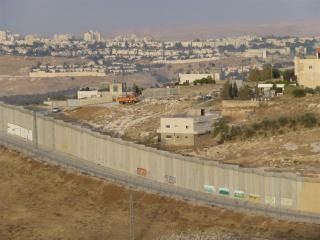 potent of all.
potent of all.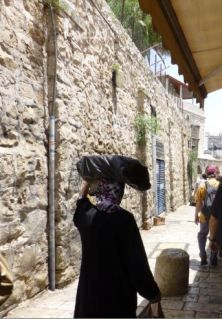 Like every situation we confront, there are always two sides. An Arab grandfather pointed to "The Wall" from the roof of his unfinished home. He said he used to visit his daughter before the wall was built. It took him 10 minutes by car but cars were no longer permitted through the checkpoints. So now it took him two hours to walk around the barrier. He laughed when he said Jesus couldn't walk his donkey to Jerusalem if he came back tomorrow.
Like every situation we confront, there are always two sides. An Arab grandfather pointed to "The Wall" from the roof of his unfinished home. He said he used to visit his daughter before the wall was built. It took him 10 minutes by car but cars were no longer permitted through the checkpoints. So now it took him two hours to walk around the barrier. He laughed when he said Jesus couldn't walk his donkey to Jerusalem if he came back tomorrow.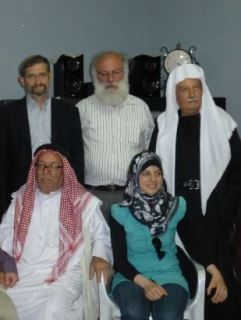 the wall. "They" said the moderates are the majority but they've been silent too long. We have to stop the radicals on both sides of the fence.
the wall. "They" said the moderates are the majority but they've been silent too long. We have to stop the radicals on both sides of the fence.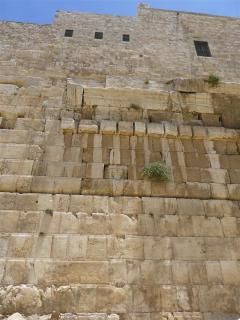 violence and rigid opinions prove peace is as illusive in the area as it ever was. Into that restlessness we went, charged with a mission to hold a harmonic state of being while withholding all judgment on what was being observed. That was the peace pilgrimage to Israel we embarked upon a month ago.
violence and rigid opinions prove peace is as illusive in the area as it ever was. Into that restlessness we went, charged with a mission to hold a harmonic state of being while withholding all judgment on what was being observed. That was the peace pilgrimage to Israel we embarked upon a month ago.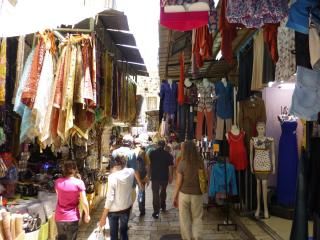 In daily walks through this maelstrom of behavior and activity I felt the stone-like rigidity of centuries of beliefs and hurts. The people carried within themselves all the competing drama and pain of eons of cultural conduct. Meanwhile, the cold stones above, below and around held and mirrored those same bewildering passions and traditions. The stones felt like a colossal hundred foot high fortress constricting the heart of the city and its people. It was suffocating.
In daily walks through this maelstrom of behavior and activity I felt the stone-like rigidity of centuries of beliefs and hurts. The people carried within themselves all the competing drama and pain of eons of cultural conduct. Meanwhile, the cold stones above, below and around held and mirrored those same bewildering passions and traditions. The stones felt like a colossal hundred foot high fortress constricting the heart of the city and its people. It was suffocating.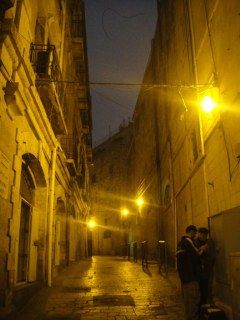 The ancient stones were breathing. There was a subtle rhythm in the walls that felt like the labored release of eons of weariness. With the people and all the religious and cultural baggage removed from the streets, the living stones could finally take a deep breath. I sensed them wearily breathing in and breathing out. In this brief respite of time the stones could recharge themselves until the next day's onslaught of emotional disquiet.
The ancient stones were breathing. There was a subtle rhythm in the walls that felt like the labored release of eons of weariness. With the people and all the religious and cultural baggage removed from the streets, the living stones could finally take a deep breath. I sensed them wearily breathing in and breathing out. In this brief respite of time the stones could recharge themselves until the next day's onslaught of emotional disquiet.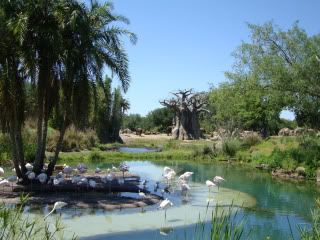 replenish sorely drained batteries. So, we decided to take the summer off. The decision immediately created a sense of relief, joy, and freedom. But, even as the outer intention was easily put forward, hours of disquiet soon followed.
replenish sorely drained batteries. So, we decided to take the summer off. The decision immediately created a sense of relief, joy, and freedom. But, even as the outer intention was easily put forward, hours of disquiet soon followed. disappearing, it was time to make plans for the sojourn.
disappearing, it was time to make plans for the sojourn. 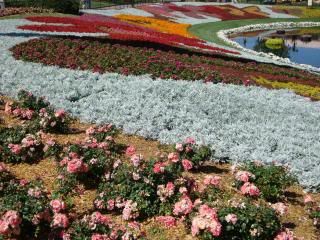 color, gentle butterflies flitting around us and the sounds of laughter, drums, dancing, and languages from every corner of the world. We witnessed people enjoying life and realized, that is what living in spirit is about - finding the joy, seeing the beauty, hearing the song that is life.
color, gentle butterflies flitting around us and the sounds of laughter, drums, dancing, and languages from every corner of the world. We witnessed people enjoying life and realized, that is what living in spirit is about - finding the joy, seeing the beauty, hearing the song that is life. back and forth a skywriter appeared overhead. We watched the plane begin to make huge white letters against the blue sky. First a large T, then an R, then a U. In a few minutes, there above us in enormous letters, was the word TRUST written out in the sky.
back and forth a skywriter appeared overhead. We watched the plane begin to make huge white letters against the blue sky. First a large T, then an R, then a U. In a few minutes, there above us in enormous letters, was the word TRUST written out in the sky.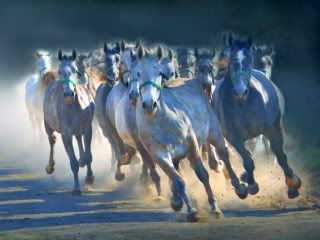 the distance a dust storm grew in fury and intensity heading towards us. As it neared we saw the cause of the disturbance. Hundreds of
the distance a dust storm grew in fury and intensity heading towards us. As it neared we saw the cause of the disturbance. Hundreds of 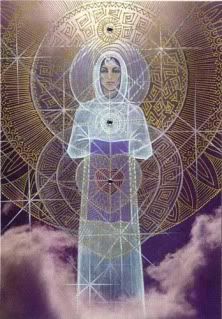 Mother/Goddess who drew a silver and black highly polished sword and tossed it up into the heavens. The sword fell back towards the fire where it landed and broke into a million flames. Each flame illuminated the tops of the heads of all the women assembled. The Divine Mother was empowering them to remember that they were being called in service to humanity.
Mother/Goddess who drew a silver and black highly polished sword and tossed it up into the heavens. The sword fell back towards the fire where it landed and broke into a million flames. Each flame illuminated the tops of the heads of all the women assembled. The Divine Mother was empowering them to remember that they were being called in service to humanity.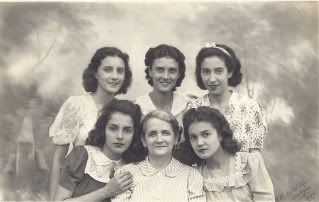 British, haughty, regal and very elegant. She was called "the most beautiful" of eight sisters, all of whom were well-known beauties. She was adventurous, swimming in barracuda infested waters in her thirties and body-surfing into her late seventies. She wrote both prose and poetry, was an artist, articulate, well-educated and well-read. She was a prolific writer, leaving hand-written commentaries in the margins of books and opinionated note-cards about people or current events tucked into nooks and crannies. In the latter part of her life, religious fervor blossomed. Not until the last year of her life did I notice a hint of mysticism. She was often challenging but nevertheless, a strong guiding force in my life. She was my mother!
British, haughty, regal and very elegant. She was called "the most beautiful" of eight sisters, all of whom were well-known beauties. She was adventurous, swimming in barracuda infested waters in her thirties and body-surfing into her late seventies. She wrote both prose and poetry, was an artist, articulate, well-educated and well-read. She was a prolific writer, leaving hand-written commentaries in the margins of books and opinionated note-cards about people or current events tucked into nooks and crannies. In the latter part of her life, religious fervor blossomed. Not until the last year of her life did I notice a hint of mysticism. She was often challenging but nevertheless, a strong guiding force in my life. She was my mother!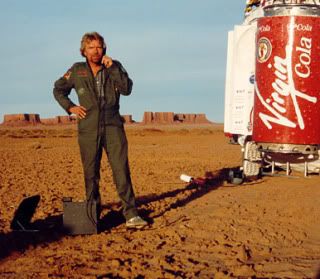 Couric, Pope John and other dignitaries. We were positive she'd gone over the edge. But after her death we found boxes of letters from all the people she'd told us about. She'd written to correct their pronunciation of a word on a TV broadcast, or to congratulate them about an achievement. In the box we found hand-written response letters or post cards from Branson, Katie Couric, Jimmy Carter, Al Roker, and all the people she'd written. Just like she said! She also wrote commentaries about people in public office that she didn't care about. I found this on a newspaper clipping about Richard Nixon's death: "An outpouring of insincere words for an unscrupulous man. I'll put out the flag not for that rogue but for the Presidency."
Couric, Pope John and other dignitaries. We were positive she'd gone over the edge. But after her death we found boxes of letters from all the people she'd told us about. She'd written to correct their pronunciation of a word on a TV broadcast, or to congratulate them about an achievement. In the box we found hand-written response letters or post cards from Branson, Katie Couric, Jimmy Carter, Al Roker, and all the people she'd written. Just like she said! She also wrote commentaries about people in public office that she didn't care about. I found this on a newspaper clipping about Richard Nixon's death: "An outpouring of insincere words for an unscrupulous man. I'll put out the flag not for that rogue but for the Presidency."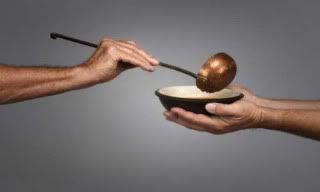
 I invited him to eat with us. He felt he couldn't because of all the fine people that were present at the funeral. I insisted he join us, and barely reaching his chest, hugged him. When I pulled back I saw tears flowing down his cheeks. All he said was, "
I invited him to eat with us. He felt he couldn't because of all the fine people that were present at the funeral. I insisted he join us, and barely reaching his chest, hugged him. When I pulled back I saw tears flowing down his cheeks. All he said was, "
 patients what were the five things they most regretted in life or would
patients what were the five things they most regretted in life or would 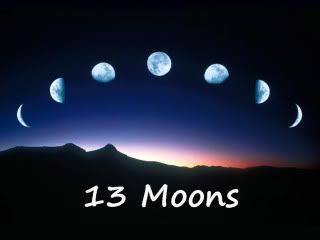 more specifically, in the northern Native American tribes, the Mothers of the Clans were held in sacred reverence. These Clanmothers were the historians, the faith-keepers, spiritual advisors, and the ones who chose tribal leaders. They served in rituals, ceremonies, medicine and spiritual events. As life-givers, their role was keeper of the culture and history of the tribe.
more specifically, in the northern Native American tribes, the Mothers of the Clans were held in sacred reverence. These Clanmothers were the historians, the faith-keepers, spiritual advisors, and the ones who chose tribal leaders. They served in rituals, ceremonies, medicine and spiritual events. As life-givers, their role was keeper of the culture and history of the tribe. 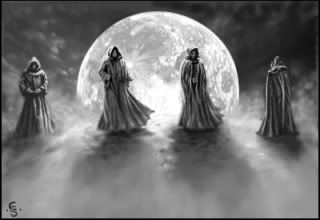
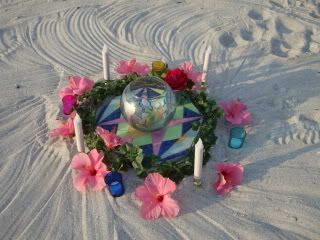
 colored the world that I see ever since I first heard it and it's become a pseudo-mantra in raising my own consciousness. When confronting any challenge, life change, large or minor life situation, the mantraWhat's Love Got To Do With It? puts a spin on the event that begs for more careful examination of what's being observed.
colored the world that I see ever since I first heard it and it's become a pseudo-mantra in raising my own consciousness. When confronting any challenge, life change, large or minor life situation, the mantraWhat's Love Got To Do With It? puts a spin on the event that begs for more careful examination of what's being observed.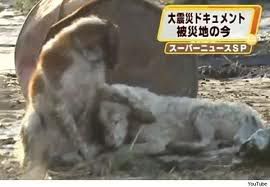
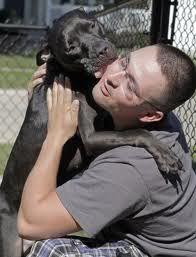
 years, their mission was to fly to Jupiter and Saturn. Then maybe, if everything worked out just right and the mechanical parts didn't freeze up, go past Uranus and Neptune. Thirty years later they're now poised at the edge of our solar system and headed for deep space.
years, their mission was to fly to Jupiter and Saturn. Then maybe, if everything worked out just right and the mechanical parts didn't freeze up, go past Uranus and Neptune. Thirty years later they're now poised at the edge of our solar system and headed for deep space.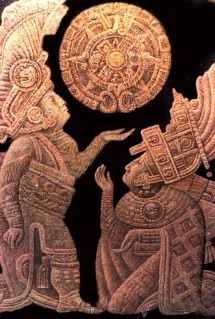 messenger out of time that told us about an ancient culture. The Mayan Disc presented a time-capsule of their recorded history, and shone a light on their knowledge of astronomy and mathematics. The calendars within calendars explained the governance of their land, how they measured time, and best of all indirectly gave hope to future generations - ours.
messenger out of time that told us about an ancient culture. The Mayan Disc presented a time-capsule of their recorded history, and shone a light on their knowledge of astronomy and mathematics. The calendars within calendars explained the governance of their land, how they measured time, and best of all indirectly gave hope to future generations - ours.  consider another species finding the discs, deciphering the messages, and visiting earth. Who knows, maybe our great great grandchildren will be the ones traveling to distant galaxies to find the discs.
consider another species finding the discs, deciphering the messages, and visiting earth. Who knows, maybe our great great grandchildren will be the ones traveling to distant galaxies to find the discs.  the transformational eve for the major prophecies about 2012. So I took a journey into the history of predictions and was surprised where I ended up.
the transformational eve for the major prophecies about 2012. So I took a journey into the history of predictions and was surprised where I ended up. 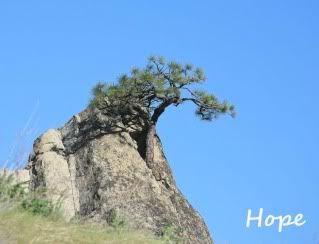 Well publicized predictions through the ages are easy to find but not so the more subtle evidences of 'hope'. While preparing to write the December article a story found me. It's depth and scope was heart-warming. It was a story that showed how Hope remained kindled in the hearts of a group of men for more than 70 years even as their numbers dwindled. Their story is an indicator of human patience, conviction and finally justice. It's evidence of humanity's belief that "it will get better next year." From that perspective all the predictions of 2011 came into focus.
Well publicized predictions through the ages are easy to find but not so the more subtle evidences of 'hope'. While preparing to write the December article a story found me. It's depth and scope was heart-warming. It was a story that showed how Hope remained kindled in the hearts of a group of men for more than 70 years even as their numbers dwindled. Their story is an indicator of human patience, conviction and finally justice. It's evidence of humanity's belief that "it will get better next year." From that perspective all the predictions of 2011 came into focus.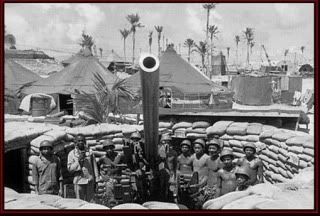 and kept in segregated units. When deployed, they sat in segregated trains. If the "black cars" were full, they had to wait for the next train, even if the white cars were empty. Their service was restricted to support services like defending the base or hauling ammunition to the front lines of battle. In the South Pacific these Marines carried their injured white counterparts back to safety while others readily picked up the weapons of the white Marines who were killed in battle. They stayed and engaged the fight before being ordered back to the rear at the conclusion of the battle.
and kept in segregated units. When deployed, they sat in segregated trains. If the "black cars" were full, they had to wait for the next train, even if the white cars were empty. Their service was restricted to support services like defending the base or hauling ammunition to the front lines of battle. In the South Pacific these Marines carried their injured white counterparts back to safety while others readily picked up the weapons of the white Marines who were killed in battle. They stayed and engaged the fight before being ordered back to the rear at the conclusion of the battle. 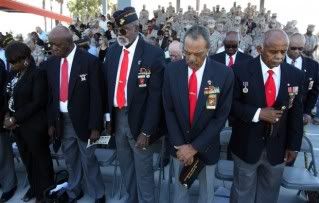 Amid all the financial, political, and environmental predictions about 2011, no one paid any attention to the dwindling number of Montford Marines, now in their 80's and 90's. That is until the current Marine Commandant heard about them and looked into their story. It so captured his attention he wanted to rectify the wrongs of the past. He ordered that all new recruits be taught the history of the Montford Point Marines along with the rest of the Corps' legacy. He incorporated their story into the curriculum of advanced classes for senior officers. Then he went a step further.
Amid all the financial, political, and environmental predictions about 2011, no one paid any attention to the dwindling number of Montford Marines, now in their 80's and 90's. That is until the current Marine Commandant heard about them and looked into their story. It so captured his attention he wanted to rectify the wrongs of the past. He ordered that all new recruits be taught the history of the Montford Point Marines along with the rest of the Corps' legacy. He incorporated their story into the curriculum of advanced classes for senior officers. Then he went a step further. 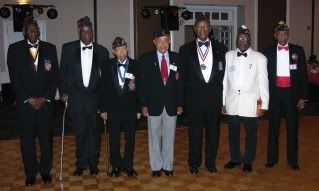 emotions said, "At last I feel like a real marine!" When their bravery in the jungles of the south Pacific was mentioned, one said, "We did everything to prove our mettle, but it never seemed to be enough until now." One of the Montford Marines told a black officer "I feel so much pride seeing you in that Marine uniform. It's enough to make an old marine cry." The officer responded, "I owe it all to you, Sir! I stand on your shoulders."
emotions said, "At last I feel like a real marine!" When their bravery in the jungles of the south Pacific was mentioned, one said, "We did everything to prove our mettle, but it never seemed to be enough until now." One of the Montford Marines told a black officer "I feel so much pride seeing you in that Marine uniform. It's enough to make an old marine cry." The officer responded, "I owe it all to you, Sir! I stand on your shoulders."